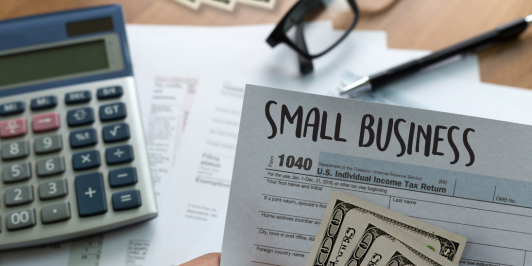QBI, “qualified business income,” can trigger a tax deduction for some small business owners or self-employed individuals.
How it works.
The deduction is still available to owners of pass-through entities — such as S corporations, partnerships, and limited liability companies — as well as self-employed individuals. But it is scheduled to expire after 2025 unless Congress acts to extend it.
The maximum deduction is equal to 20% of QBI. Generally, QBI refers to your net profit, excluding capital gains and losses, dividends and interest income, employee compensation, and guaranteed payments to partners. The deduction can be claimed whether or not you itemize.
Notably, the QBI deduction is subject to a phaseout based on your income. If your total taxable income is below the lowest threshold, you may be entitled to the full 20% deduction although other limitations do apply.
- For 2023, the thresholds are $182,100 for single filers and $364,200 for joint filers.
- For 2024, the thresholds are $191,950 for single filers and $383,900 for joint filers.
But things get tricky if your income exceeds the applicable threshold. In that case, your ability to claim the QBI deduction depends on the nature of your business.
Specifically, the rules are different for regular business owners of pass-through entities, sole proprietors, and those who are in “specified service trades or businesses” (SSTBs). This covers most business people who provide personal services to the public, such as physicians, attorneys, financial planners, and accountants. (Engineers and architects are excluded). Professionals in this group forfeit the QBI deduction entirely if income exceeds another set of limits.
- For 2023, these upper limits are $232,100 for single filers and $464,200 for joint filers.
- For 2024, these upper limits are $241,950 for single filers and $483,900 for joint filers.
If your income falls between the thresholds stated above, your QBI deduction is reduced, regardless of whether you’re in an SSTB or not. For taxpayers who are in SSTBs, the deduction is phased out until it disappears at the upper-income threshold. For other taxpayers, the deduction is limited to the lesser of 20% of QBI or the greater of 1) 50% of the wages paid to employees on W-2s, or 2) 25% of wages plus 2.5% of the unadjusted basis of the qualified property owned by the business.
What are specified service trades or businesses (SSTBs)?
Specified Service Trades or Businesses (SSTBs) are typically professional service businesses where the principal asset is the skill or reputation of one or more of the employees or owners. Examples of SSTBs include:
- Healthcare professionals like doctors, dentists, and chiropractors.
- Legal and accounting services.
- Consulting businesses.
- Financial services like investment advisors and brokers.
- Performing arts and entertainment professionals.
- Athletes and those in the sports industry.
- Any trade or business where the main asset is the reputation or skill of its employees or owners.
Available for a limited time.
The QBI deduction provides a valuable tax break for small business owners, so if it expires, their taxes are likely to go up. It’s unclear at this time whether the deduction has a chance of being extended. Contact us for guidance in determining the best strategy for your situation.
